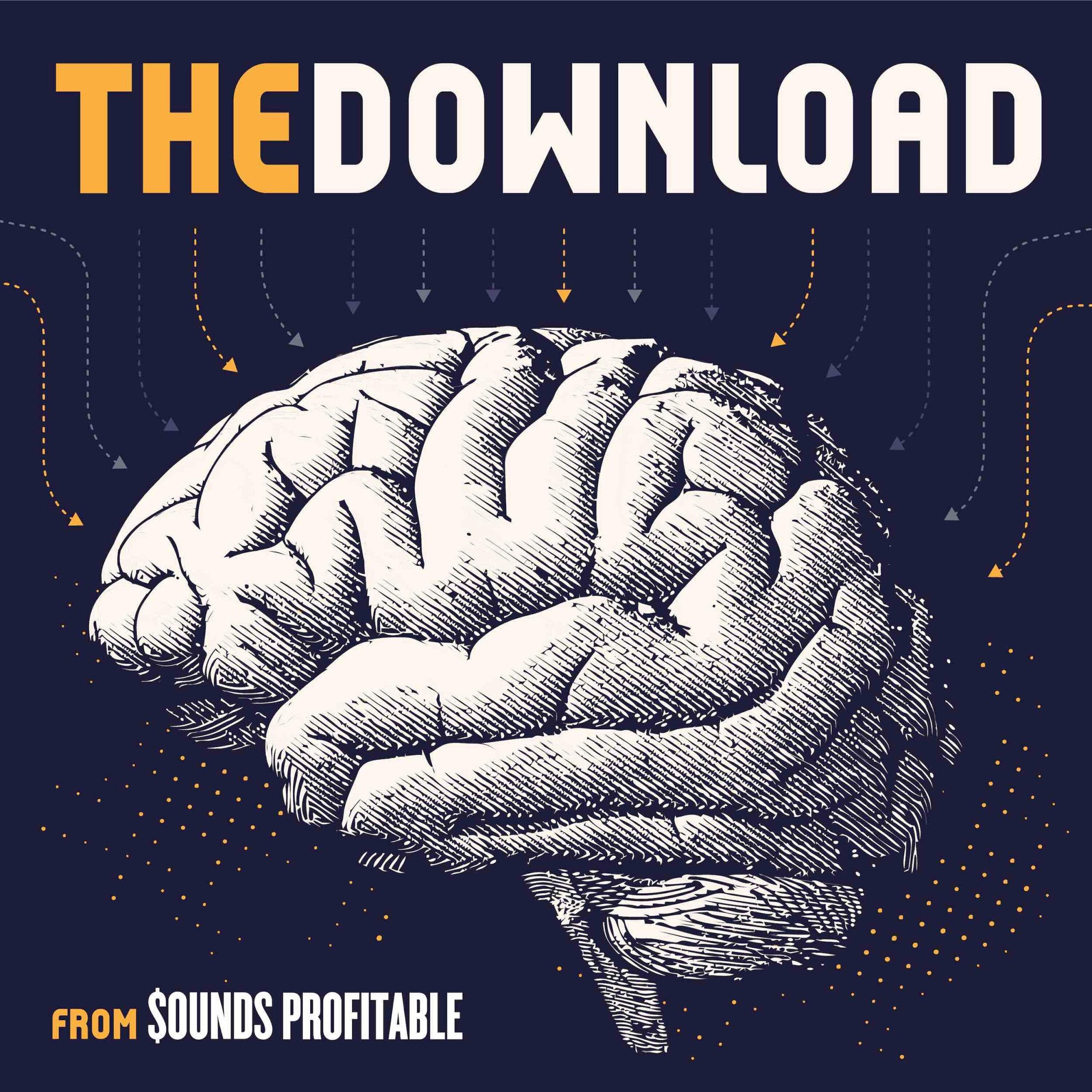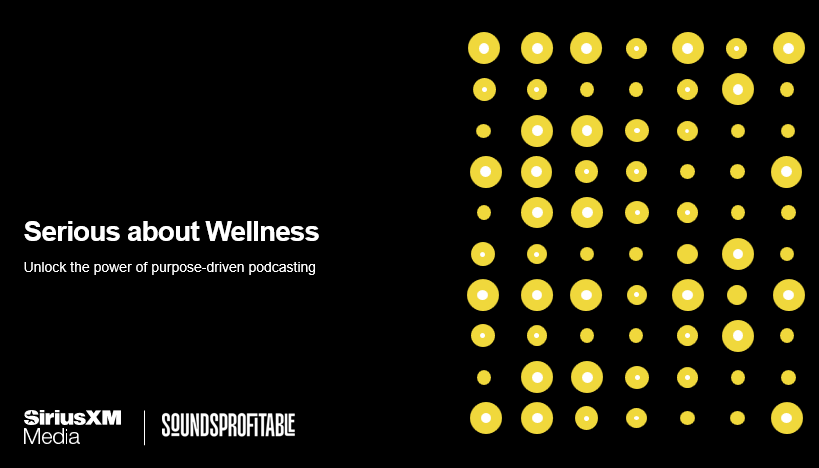This week: Podcasts found using mobile game ads for downloads, a trio of new pixels announced, and the Independent is reframing programmatic for advertisers.
Podcasters Are Buying Millions of Listeners Through Mobile-Game Ads
Manuela: Our first story is a big one! This Tuesday, Bloomberg’s Ashely Carman published a piece reporting on the discovery that podcast companies are serving podcast players as ads in mobile games.
For those not hip to mobile gaming: free-to-play mobile video games traditionally generate revenue by interrupting gameplay on a regular basis with a skippable ad, with the option to watch a 20 second unskippable ad in exchange they receive beneficial in-game items, or more attempts to play that day. Instead of serving a video ad, which is one of the more common uses of these platforms, some companies are serving a web player that plays the an episode of a podcast. The ads are timed, requiring the app user to interact for often 20 seconds or more, which is more than enough time to download an entire 1 hour podcast through progressive downloading. That download and every ad in that download would be seen as legitimate by current IAB podcast standards, even though the app user was prompted to move out of the ad and back to the game after the timer ended.
Ad fraud detection company DeepSee’s August examination of ads in the popular game Subway Surfers spotted podcasts from the New York Post, independent podcaster Scott Savlov, and iHeartMedia. Carman interviewed Corey Weiner, CEO of Jun Group, a company specializing in placing ads in mobile apps. The starting rate for Jun Group placement is a $27 CPM for one of the 20 second ads. Jun Group’s main podcast client is iHeartMedia.
“According to a person familiar with the effort, the radio company, which bills itself as the top podcast publisher globally, has shelled out more than $10 million and gained approximately 6 million unique listeners per month through these ads since 2018.”
During the last week of August, half of the top ten trending podcasts in Podtrac were iHeart productions that hadn’t uploaded new episodes in weeks, if not months, according to Carmen. Podtrac is an industry ranker that only measures podcasts that opt into their platform’s prefix analytics solution, and recently independent developer John Spurlock identified that Spreaker from iHeart had added the prefix to podcasts on their platform en masse.
Yesterday Podnews published exclusive info regarding iHeart rankings:
“Are these plays counting for iHeart’s “#1 for podcasting” Podtrac ranking? Podnews analysis confirms that the embedded podcast players used, as documented by DeepSee, makes a call to Chartable and a call to Podtrac.”
Podnews editor James Cridland then links to Podnews coverage of a 2018 story in which iHeartMedia was busted embedding podcasts on the websites of hundreds of affiliate radio stations, inflating play counts.
The core problem that led to this story existing lies in the fact that there are minimal requirements for podcast players and not requirements for reporting transparency to podcast advertisers. Podcast players like Apple are Spotify are safe to trust as one can be 99% sure it’s coming from their apps. Even web player traffic is generally trustworthy given it’s assigned less inventory in general. That said, it’s time for the industry to figure out stricter guidelines for web players and more obligations to our advertisers.
It’s not immediately clear what the finite details of a solution will be, but if all the big players in the industry came together for the sake of transparency they can build something. Something that would get publishers and advertisers alike reevaluating what inventory is or isn’t valuable based on where it’s played rather than simply if it’s played.
Pixels Galore – Podscribe and Gumball launch podcast analytics, and Magellan launches attribution
Shreya: Time to increase your resolution, several new pixels have recently arrived in podcasting. First up: a little trip to the past. Back on August 11th Podscribe announced third party impression verification. Or, in their words, third pod-y impression verification. Once users get the pixel to their publisher they will receive real-time downloads.
“As early publishers in all other seasoned media forms discovered, 3rd party verification both facilitates and is required for significant scale.”
The new verification comes designed to automatically sync to Google Sheets, allows for flagging of campaigns if suspicious data starts coming in, and GARM methodology brand safety monitoring.
Flashing forward to last Thursday, our second pixel comes from Magellan AI with their new Attribution by Magellan AI. With the new Attribution tech both advertisers and publishers will have details like campaign performance and pacing at their fingertips within the Magellan AI dashboard.
“We are helping brands and agencies complete the entire buyer’s journey in one seamless location to enable them to scale with ease as the podcast industry exponentially grows,” said Cameron Hendrix, CEO and co-founder of Magellan AI.
And for the final pixel, a bit more recent: This Tuesday Gumball, adtech division of the podcast network Headgum, announced a new feature titled Gumshoe.
“Prior to Gumshoe, host-read ad measurement and verification were archaic, requiring podcasters to provide screenshots to verify impressions and download data. Gumshoe, which works with most major hosting platforms and is compatible for both embedded and dynamic ad formats, now digitizes this function to add increased communication and transparency.”
How The Independent is getting brands on board to advertise against breaking news
Manuela: This Monday Digiday’s Kayleigh Barber covered a talk by The Independent’s SVP of U.S. publication, Blair Tapper, about the fight to sell inventory as a publication covering breaking news. In a world where huge negative stories are breaking on a regular basis, a publication that doesn’t have subscriptions to rely on has to ensure skittish advertisers have confidence in where their inventory is being served.
According to Tapper, 75% of The Independent’s ad revenue in the U.S. comes from programmatic ads. Given news is a commonly-avoided category, her team has focused on recontextualizing programmatic in a way that combats advertiser’s negative preconceived notions.
“Programmatic advertising makes up approximately 75% of The Independent’s advertising revenue in the U.S., according to Tapper. But because news is such a highly avoided category by many advertisers, her team has been working to reframe the idea that buying programmatically means losing control over where and when a display ad gets placed.”
“There used to be this misnomer that programmatic was just all of these underground pipes [that spit out ads like] magic. I really believe that’s not the case. Programmatic is still a human business, it’s still a human sell — it’s just a different way of buying inventory. And so if you can humanize the programmatic relationship, I think a lot of the objections to news go away.”
In addition to that, Tapper spoke to fighting against rudimentary lists of blacklisted keywords that accidentally catch false positives. An example given is if the keyword “shot” were to be blocked to avoid serving ads on school shootings, it also eliminates any sports articles that describe a player taking a shot at a goal.
“To remedy this, Tapper’s team works with IAS, Ipsos and NewsGuard to try and contextualize the articles affected by keyword blocking.”
It has been said before on The Download and we’ll say it again in future: Programmatic is not a dirty word, it’s a tool that works as well as you use it.
Quick Hits: Recommended Weekend Reading
Shreya: Finally, it’s time for our semi-regular roundup of articles we’re calling Quick Hits. These are articles that didn’t quite make the cut for today’s episode, but are still worth including in your weekend reading. This week’s five great reads are:
Has streaming made it harder to discover new music? By Alexis Petridis. Discoverability in podcasting is a common conversation topic. This op-ed discusses how modern music discoverability has a habit of playing things safe, to the point the charts frequently feature old songs brought to temporary viral fame due to television and TikTok.
Why Kochava says it doesn’t want to settle with the FTC by Ryan Barwick. Back in our September 8th episode we covered the beginnings of the FTC lawsuit against data broker Kochava. Barwick is reporting on the story again and, spoiler alert, Kochava’s still not backing down.
‘Harder to dispute’: Ebiquity CEO on why advertisers are slowing spending in the Google-Facebook duopoly by Seb Joseph. While Google and Facebook are doing just fine for themselves, ad dollars are beginning to slow down as a myriad of factors combine to rumble the social media giants.
Digiday+ Research: What are publishers’ priorities heading into Q4? By Julia Tabisz. Back in Q1 Digiday surveyed publishers on where their business priorities lay over the next six months. Now they’ve run the same survey again for Q4.
The Chaos Of Privacy Compliance In The US by Alyssa Boyle. Boyle interviews Dominique Shelton Leipzig, partner at Mayer Brown on the proposed American Data Privacy and Protection Act, as well as potential new rules from the FTC.


 "
"



